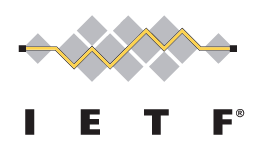The IETF develops Internet protocols deployed worldwide, including Internet of Things protocols. The work is performed in Working Groups such as ROLL. ROLL (Routing Over Low-power and Lossy Networks) IETF working group (WG) develops protocols for …
Read time: 2 mins
The context
The IETF develops Internet protocols deployed worldwide, including Internet of Things protocols. The work is performed in Working Groups such as ROLL.
ROLL (Routing Over Low-power and Lossy Networks) IETF working group (WG) develops protocols for routing related to Internet of Things used in use cases such as Industry 4.0, smart health and smart cities. The work of the working group focus on routing issues in IPv6.
Standardisation efforts should be directed towards the requirements of using cutting edge technologies in the service of European community at large. Especially, this should be done for constrained environments (e.g. with limited resources).
Maria Ines Robles, Tampere University, IETF
The challenges
Low Power and Lossy Networks are networks composed by constrained devices in constrained networks. Constrained networks are characterized by features such as high packet loss and low throughput. These types of constrained devices such as sensors and actuators are characterised by restrictions in resources such as low-memory capacity and low-power processing; in general, not depending on human intervention, they must self-organise on topologies like multihop networks. Also, these types of devices are in general battery-powered, thus they have to optimise the resources usage for energy preservation, since these devices have to be able to work for several years without battery replacement.
How standardisation activities help face the challenges
The ROLL working group develops routing solutions in order to address the challenges mentioned above. One of the protocols developed for this is RPL(RFC6550), the IoT-routing protocol, with features such as self-healing capabilities. The aim of ROLL is to improve the routing in constrained environments, taking into consideration aspects such as high reliability and connectivity while operating low-power operation in a high number of devices with constrained memory and Central Processing Unit (CPU). Also, ROLL addresses routing security and manageability aspects.
The Benefits
Protocols developed in ROLL,apply to different use cases such as Smart Cities and Smart Grid, Industrial 4.0, Smart Home and Smart Building.
For example, In the case of Smart Cities, sensors will be installed outdoors to improve living conditions of people, by monitoring e.g. pollution data or by collecting municipal consumption data, such as smart-metering water, gas, waste, etc.;
Future plans
The working group continues working on improving the routing in Low Power and Lossy Networks, the protocols developed such as RPL and MPL, improving features of routing IoT protocols, such as energy saving requirements and operation under uncertain conditions.


